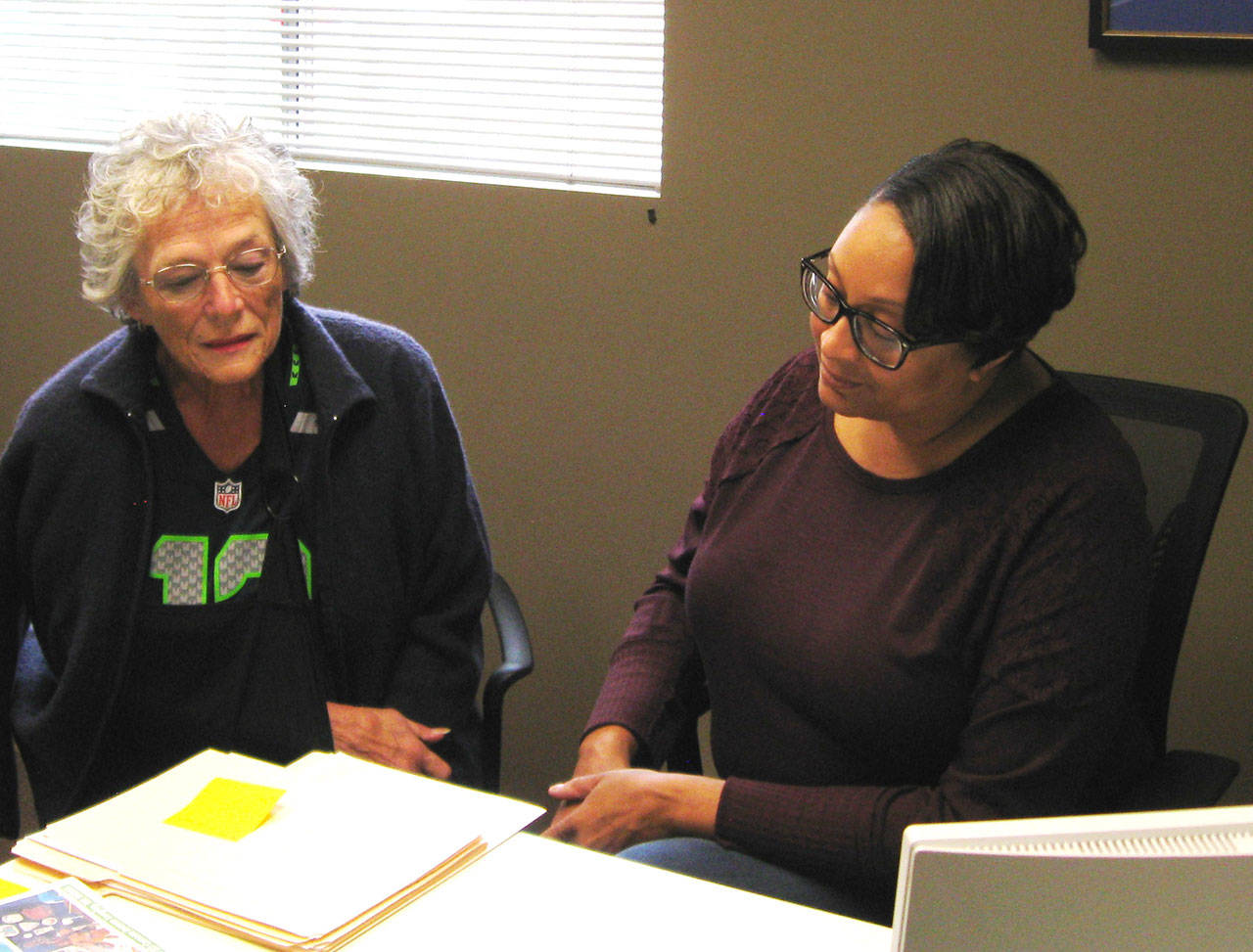Since the beginning of humankind, people have told stories of who they are and how they are connected. The television mini-series “Roots” and subsequent TV programs generated contemporary interest in those links.
Now, Island County Historical Society offers the Langley Archive and Research Center, known as LARC, to assist those searching for family history.
For example, assistance from the newly opened LARC enabled a South Whidbey woman to find a direct ancestor who served in the Revolutionary War. This connection qualifies her for the prestigious Daughter of the American Revolution designation.
“People want to know where they came from and genealogy places them in context,” says Maureen MacDonald, president of the Genealogical Society of South Whidbey Island. “Name and date is important, but we want to help people go as deeply as possible to develop a real context. Family stories are important. It’s not all online and it doesn’t happen in 30 minutes like a TV program.”
As an example of context, MacDonald says she learned her family followed the timber trade from Maine, has pioneer status in 18 states and has become much more interested in the Civil War than she ever thought.
“We’ll help people work backwards through family history to find out not only who their ancestors were, but what they did, what was happening and how families developed,” says archivist Cassie Rittierodt. “We have a very passionate volunteer staff, and we hope to provide a valuable community service.”
LARC is currently open only on Mondays and Tuesdays, from 10 a.m. to 4 p.m. The center has an extensive genealogical library and access to internet services, including an international subscription to Ancestry.com, one of the largest online data repositories. For a $5 fee per session, family history researchers can work with skilled volunteers from Genealogical Society of South Whidbey Island. The fee includes printed records and copies as needed.
The Whidbey Island Genealogical Searchers also helps individuals interested in family history. WIGS operates mostly in North Whidbey, providing similar services and holding regular meetings.
“A lot of people have a general idea of working on family history, but sometimes they get stuck,” Rittierodt observes. “It’s very worthwhile to have a place to go and resources than can help continue the search.”
Jacqueline Vannice, president of Whidbey Island Genealogical Searchers, says the best way to get started on family history is to gather as much information from stories, photographs, obituaries, family bibles, newspaper articles and other sources.
“Record all the names and facts on a blank family group form, begin with yourself and work backwards,” she said.
Vannice says the free web site FamilySearch.org is a good source of information, along with Ancestry.com. While Ancestry is subscription-based, some limited functions are available at no charge. Many people like the way Ancestry provides “hints” to guide the search.
Rittierodt says once people get started, there’s more to history than they realize.
“In the past, people were sometimes reluctant to tell family stories to children and those stories were lost,” she says. “I’d like to see more young people participating and developing an appreciation for both family and general history.”
MacDonald and Rittierodt both caution about “name and date gathering” and DNA testing, saying “you can definitely go down some rabbit holes” with misleading information.
“Some people just want to know their ethnicity through DNA testing,” says MacDonald. “But we have to ask how people got to a location generally called Britain, or realize that Vikings got a lot farther than Scandinavia, or even that modern France has only existed for several hundred years.”
MacDonald also says that knowing where a family originated often explains why people live in a certain location.
For example, residents of the Pacific Northwest might trace roots to railroad development, migration from California or the Alaska Gold rush of the 1890s.
Island County Historical Society Executive Director Rick Castellano says the center plans to offer workshops and other related activities, including intern opportunities for history students.
LARC is located at 721 Camano Avenue in Langley, in a stand-alone yellow-colored building just past the fairgrounds. The building, which formerly housed the South Whidbey School District, is accessible to those with mobility impairments. There is one handicapped parking space in front.
• For information, people can contact LARC at 360-221-3323 or e-mail arc-ichs@whidbey.net. The South Whidbey genealogical group is at www.gsswi.org/contact.shtml. Whidbey Island Genealogical Searchers can be reached by e-mail at whidbeygen searchers@gmail.com.


